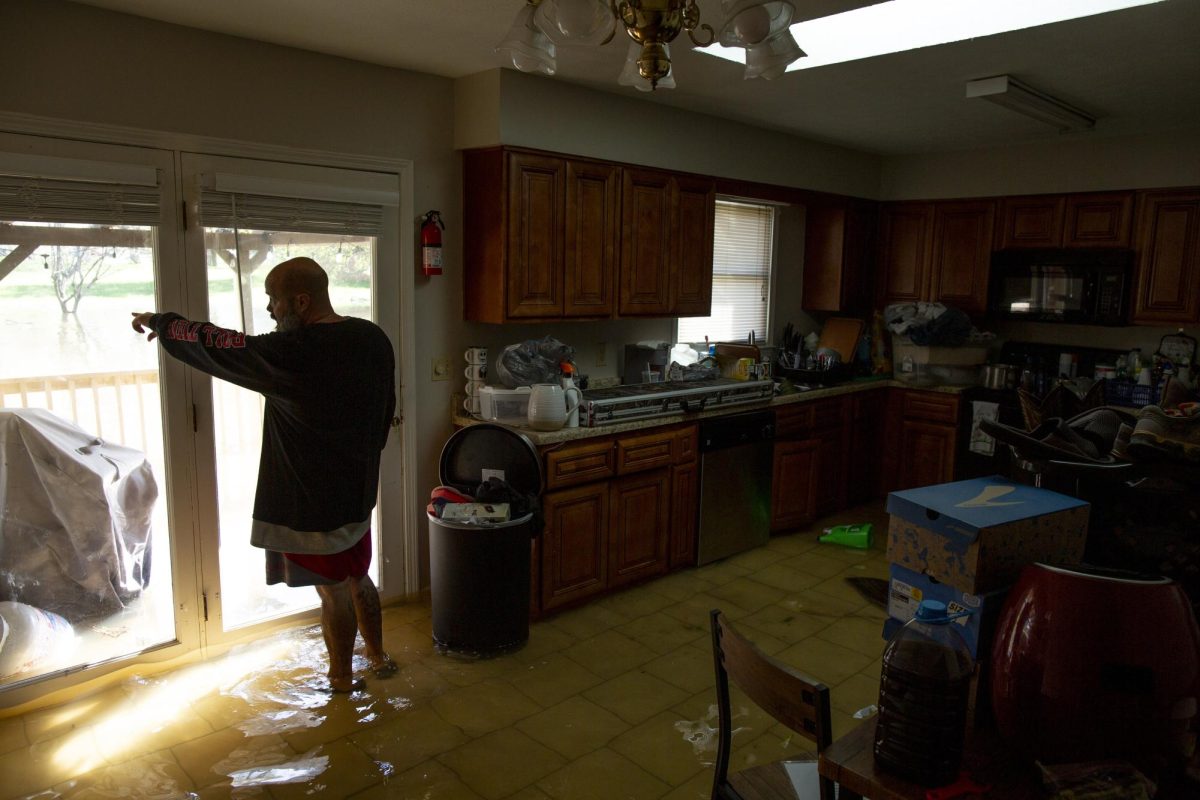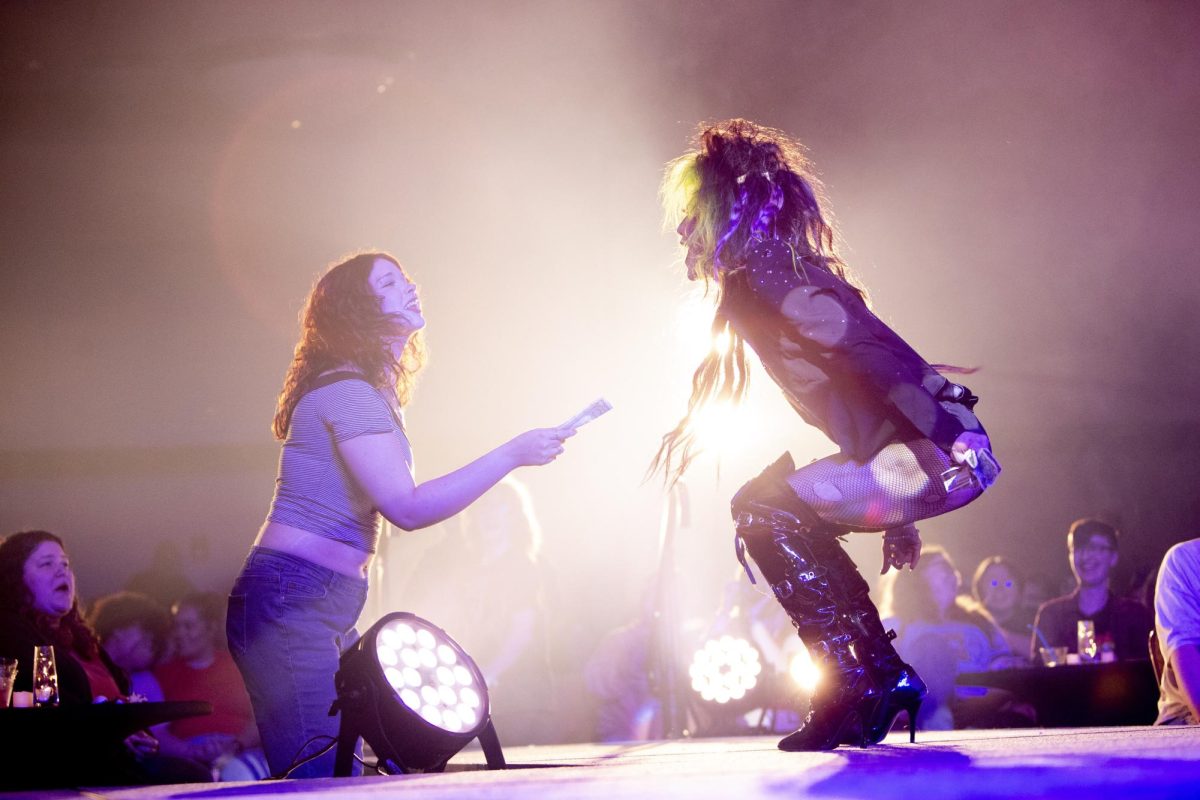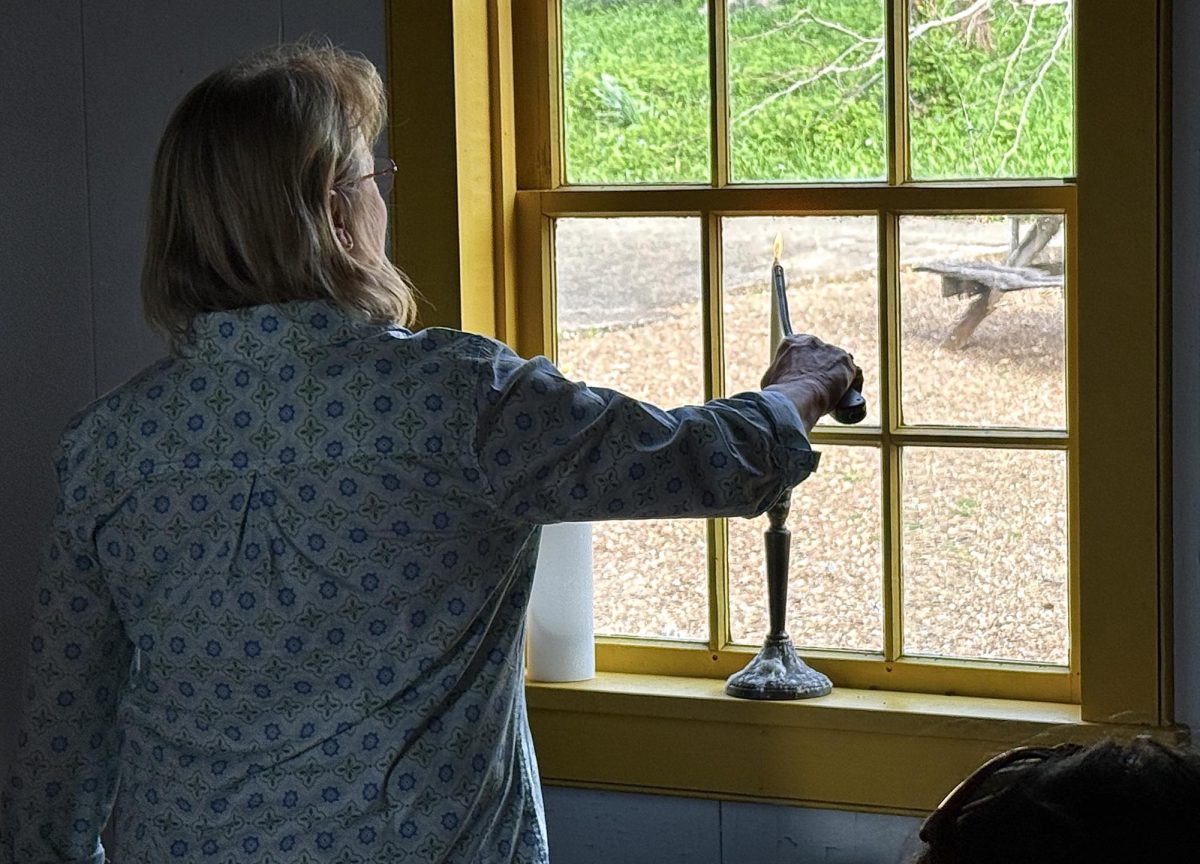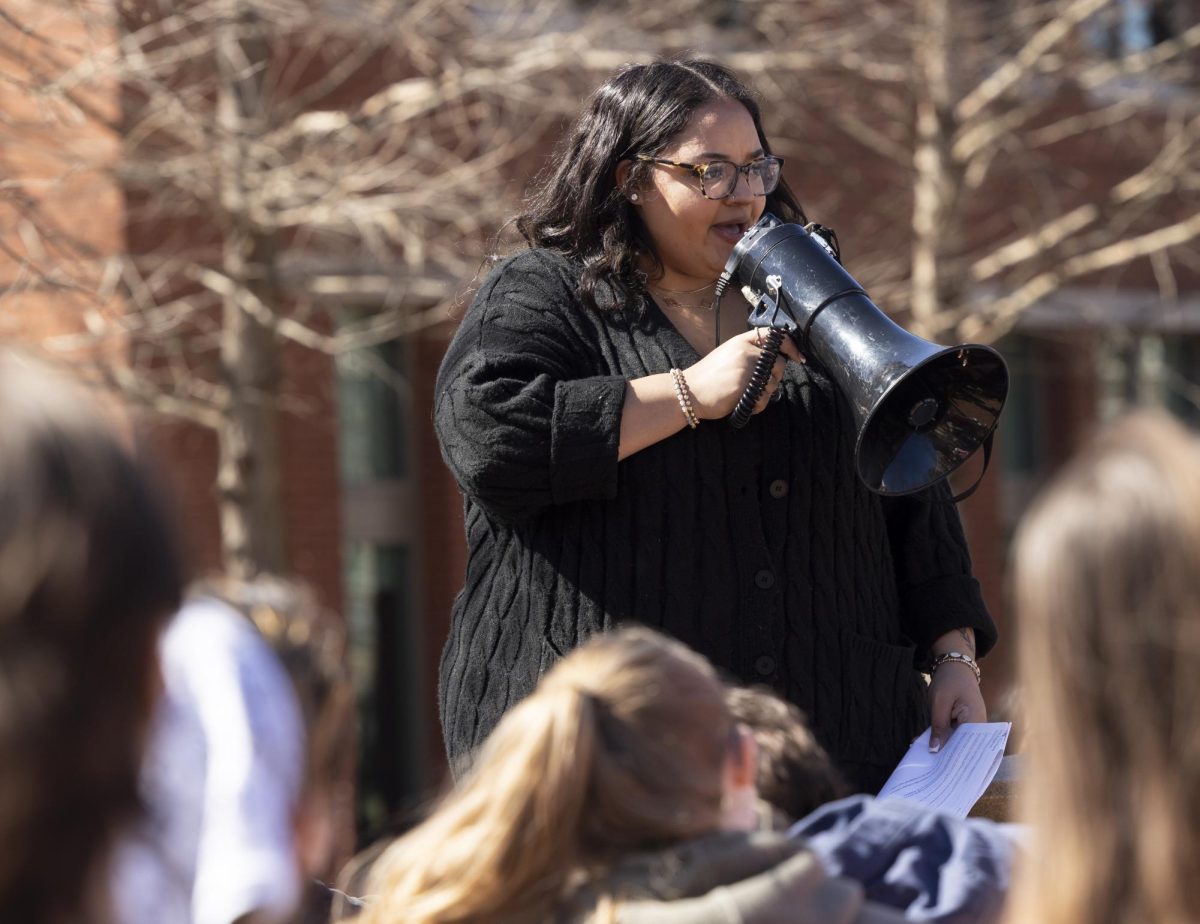The Kentucky Museum hosted a panel on Tuesday, Sept. 24 to discuss Bowling Green’s history of welcoming diverse international communities.
International Communities Liaison Leyda Becker spoke with three panelists; Dr. Albert Mbanfu, April Mench and Dmytro Kondratovych, about Bowling Green’s large refugee population. Each speaker shared their experience of becoming a ‘New American’ and spoke to attendees about how they can help smoothen this transition for others.
‘New American’ is a less polarizing term that encompasses anyone who was born outside of the United States, said Becker.
Bowling Green acts as a prime resettlement area for ‘New Americans.’ The city became a designated resettlement site in 1979 and maintains a proud history of welcoming refugees and immigrants from around the globe.
Mench, who works for the Karenni Cultural Preservation Center, migrated to the U.S. at 17 years old from a refugee camp in Thailand. Mench discussed how the Karenni Cultural Preservation Center works closely with the International Center of Kentucky to integrate ‘New Americans’ into the city. The center provides employment, housing, education, transportation and social services to immigrants and refugees to better ease their transition.
The International Center of Kentucky, one of three refugee resettlement agencies in Kentucky, has worked to resettle refugees in and around Bowling Green since 1981, striving to address the needs of refugees and immigrants as they rebuild their lives, according to their website. Services such as English language training programs, enrollment in social services, medical screenings, access to a social security card and more can be provided to those in need.
Mbanfu, director of the International Center of Kentucky, immigrated to Atlanta, Georgia from West Africa. Mbanfu opened the conversation up to the harsh reality of the immigration process. According to Mbanfu, many refugees leave their families behind and begin their new lives alone, causing feelings of loneliness and depression. Most refugees are also fleeing dangerous countries, often situations full of war and injustice creating a challenging transition.
“In any scenario, it’s not all that smooth,” said Mbanfu. “There is always risk.”
It is also a common misconception that immigrants and refugees drain community resources, said Mbanfu. In reality, according to FWD.us, their arrival helps create jobs, raise wages and increase productivity.

Kondratovych, financial specialist at the city of Bowling Green, fled from Ukraine two years ago. He shared how, like most refugees, his experience was rather lonely at first. A thick accent created a language barrier and a longer name prevented him from employment. Kondratovych stresses the importance of being kind to ‘New Americans’ and urges citizens to embrace their heritage. Cultural preservation and celebration of different communities helps maintain one’s cultural identity, giving them a sense of belonging.
Becker, WKU alumni, immigrated to the U.S. from Venezuela at 13 years old. Becker encourages the public to think proactively about integrating ‘New Americans’ into their lives. Beginning conversations, staying clear of stereotypes, and asking questions are great first steps.
“A smile can convey so much more than words. . . acceptance,” said attendee, WKU professor Michelle Reece.
News Reporter Maegan Hale can be reached at maegan.hale446@topper.wku.edu.









